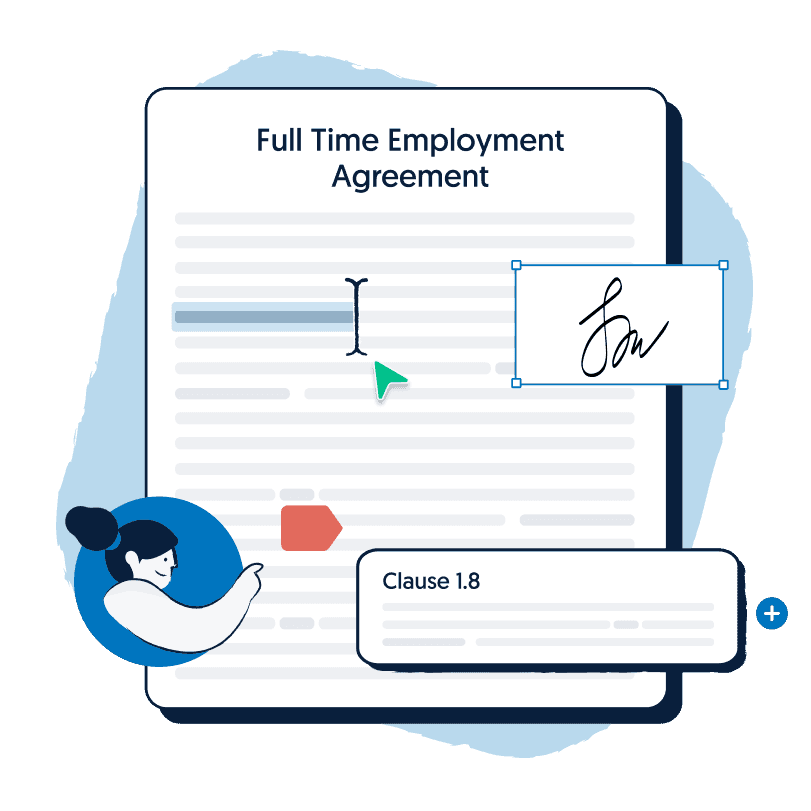Confidentiality is an extremely important aspect of any business or company. It is not surprising that there are a range of different avenues businesses can take to strengthen workplace confidentiality. This article will give you valuable insight into the legal documents and practices you can adopt to maintain confidentiality in the workplace.
Table of Contents
The importance of Confidentiality in the Workplace
Many workplaces and businesses deal with confidential information everyday. It is increasingly common for businesses to store, manage and interact with their confidentiality information digitally. Therefore, it is important that you have the right measures in place to protect that information. Your businesses confidential information may include:
- Employee information,
- Customer details/data and,
- Business information, such as proprietary software/databases, manufacturing processes, trade secrets, solicitation, branding plans, marketing strategies etc.
Confidential information could include any information that forms a vital part of your business. Now, there is always the risk that someone might divulge your businesses secrets or records. Unfortunately, majority of the time, it is employees that engage in this type of behaviour. But, do not fear! There are a range of legal processes, legal documents and other mitigation strategies that can protect your workplaces confidential information.

Get your Full Time Employment Agreement legal document for free.
How to implement Confidentiality in the Workplace
1. Ensure your Employment Contracts contain Confidentiality Clauses
Now, this is a big one. Arguable, this may be one of the most important aspects of maintaining confidentiality in the workplace. This is because the employment agreement can contain provisions that specifically deal with the legal obligations of your employees.
For New Employees:
Confidentiality clauses in new employment agreements can educate new employees about your workplaces regulations surrounding confidential information. These clauses ensure that new employees understand that they cannot use confidential information, gained during their employment, outside of their employment. Make sure your employment contract is clear and precise to ensure your new employees understand these obligations and duties.
For Leaving Employees:
When an employees decides to resign, your employment contract may contain provisions relating to the protection of any confidential information. This generally relates to the handing over of any confidential information, accounts or company property. A popular confidentiality clause relating to resigning employees is the non-compete clause. A non-compete clause will prevent a former employee from using confidential information, such as trade secrets or other intellectual property, to start their own competing business or disclosure such information to other competitors. Now, non-compete clauses are only enforceable if the court considers them necessary for the protection of your businesses interests, so it’s best to get them review by a Lawyer.
2. Implement Confidentiality Policies
Implementing a confidentiality policy or other workplace policies is another great way to ensure new, current and leaving employees understand their obligations to keep any confidential information, well, confidential. If you choose to implement such as policy, you must bring it to the attention of all your employees. If you want your confidentiality policy to form part of your employment contract, the wording you choose must be clear. For instance, use the words “abide by” and “comply with” to ensure your employees know that this policy is promissory in nature. Also, make sure the obligations in the policy are specific, rather than generalised.
3. Confidentiality in the Workplace Training Days
Having training days to explain your businesses practical initiatives is another great way to strengthen confidentiality in the workplace. Training days can also ensure that your employees are being reminded of their obligations under their Employment Contract or business policies.
A former-employee is using Confidential Information. What do I do?
If you suspect that a former employee is using your businesses confidential information, you should consider sending them a letter of demand. A letter of demand is a formal way to request they cease their breaching actions. However, if these breaching actions do continue, you may want to consider taking further legal action, as confidentiality breaches can be detrimental and costly to your business reputation.
Key Takeaways
Maintaining confidentiality in the workplace is an integral part of your business growth and development. You must protect your business information at all costs. There are a variety of ways your businesses can maintain and strengthen its position on confidentiality. For instance, having strong and clear employment contracts in place, implementing non-compete clauses, having a confidentiality policy and also by conducting training days. If you suspect a former employee is using your businesses confidential information, try demanding they stop this behaviour. However, if they refuse or continue this conduct, you may want to consider taking legal action against them.




